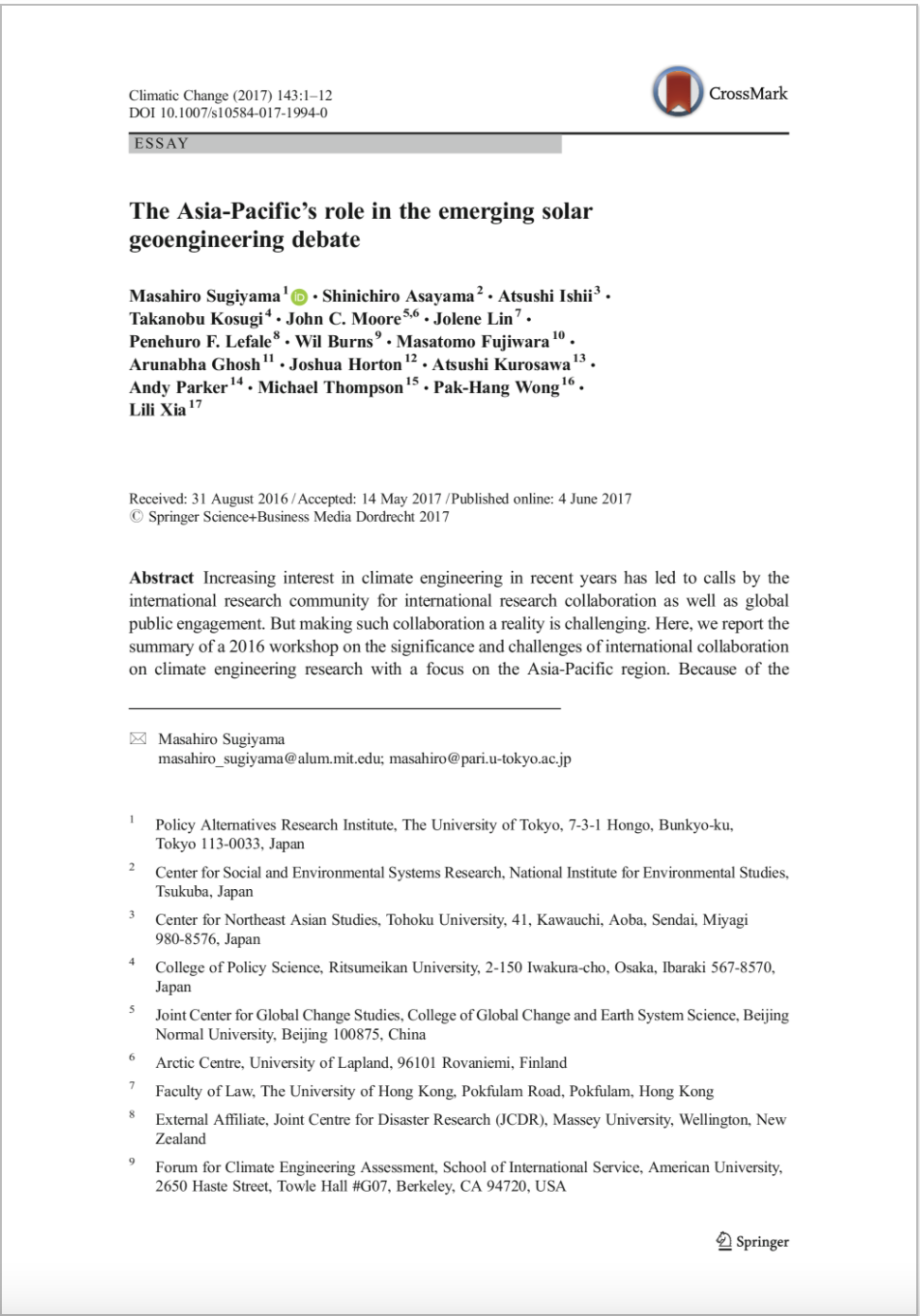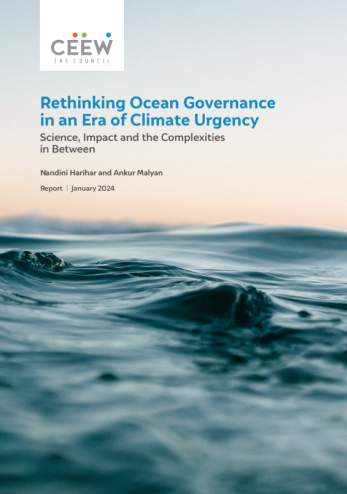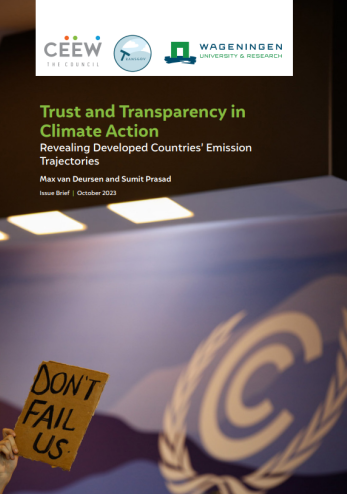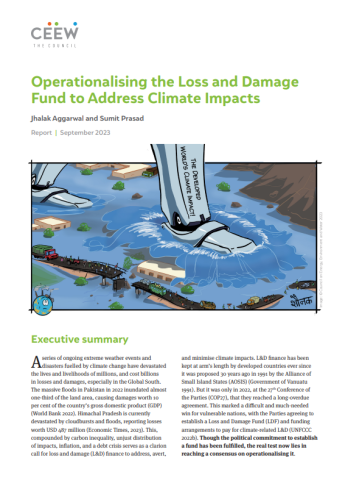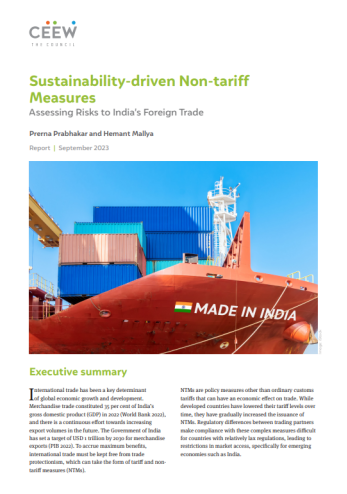Paper
The Asia-Pacific’s Role in the Emerging Solar Geoengineering Debate
Masahiro Sugiyama, Shinichiro Asayama, Atsushi Ishii, Takanobu Kosugi, John C. Moore, Jolene Lin, Penehuro F. Lefale, Wil Burns, Masatomo Fujiwara, Arunabha Ghosh, Joshua Horton, Atsushi Kurosawa, Andy Parker, Michael Thompson, Pak-Hang Wong, Lili Xia
June 2017 | International Cooperation, Technology Futures
Suggested Citation: Sugiyama, Masahiro, Shinichiro Asayama, Atsushi Ishii, Takanobu Kosugi, John C. Moore, Jolene Lin, Penehuro F. Lefale et al. 2017. "The Asia-Pacific’s role in the emerging solar geoengineering debate." Climatic Change 143, no. 1: 1-12.
Overview
This paper summarises and refines key messages on how the Asia-Pacific region could contribute to international collaboration on climate engineering research. It summarises the discussion at a 2016 workshop on the significance and challenges of international collaboration on climate engineering research convened in Tokyo with a focus on the Asia-Pacific region. The recommendations center on potential topics for transdisciplinary research of solar radiation management (SRM) assessment, and possible strategies for building capacity to enable such research in the Asia-Pacific region.
Key Highlights
- A series of standardised computer simulations indicated that stratospheric aerosol injection (SAI) generally could bring the climate closer to the pre-industrial than in global warming scenarios, and could ameliorate various impacts, including those of climate extremes such as storm surges due to tropical cyclones.
- Impact analysis is an area where scientists in the Asia-Pacific region can contribute greatly. With the data from projects like Geoengineering Model Intercomparison Project (GeoMIP) openly available, scientists and researchers from the region can get access to the data and conduct research, utilising local knowledge about key sectors.
- However, the practical difficulties of downloading terabytes of data remain considerable in many developing countries. A more significant challenge is how to assist the capacity building of the local research community in the region.
- In the context of public engagement on climate geoengineering, groups that are particularly vulnerable to climate change, such as the Pacific islands, should have their voice prioritised in the climate geoengineering debate.
- In the Asia-Pacific context, the input of regional scientists and experts would be important. On the other hand, in some countries with a strong tendency of multilateralism (e.g., Japan and India), internationally acclaimed experts could also be influential in the national debate about geoengineering.
- Given the different modes of trust across the region and various local backgrounds, there is no ready-made public engagement method./li>
- Early public engagement on emerging technologies such as SRM faces the issue of framing effect. In engagement processes, extra careful attention should be paid to problem framing and language used to communicate.
- A good initial step might be for states in the Asia-Pacific region to establish a network of researchers and stakeholders, in careful coordination with public engagement considerations.
- Capacity-building or development should also be encouraged before establishing a formal Asia-Pacific intergovernmental framework.
- In order to ensure transparency and accountability, the countries in the region must be apprised of the results as the research progresses.
Key Recommendations
- Exploit the synergy between climate impact analysis and impact studies of climate engineering, which should be combined with capacity building exercises in the Asia-Pacific.
- Establish an ad hoc Asia-Pacific experts working group on SRM, which should work with existing collaboration channels, including the Asia-Pacific Network (APN) for Global Change Research and Future Earth, and should also explore appropriate modes of engagement in different political/cultural contexts.
The working group has an important task to develop effective communication and engagement strategies. Efforts to foster deliberation in the region will need to acknowledge a wide range of cultural traditions, including different views of authority and attitudes toward the relationship between humans and nature.




